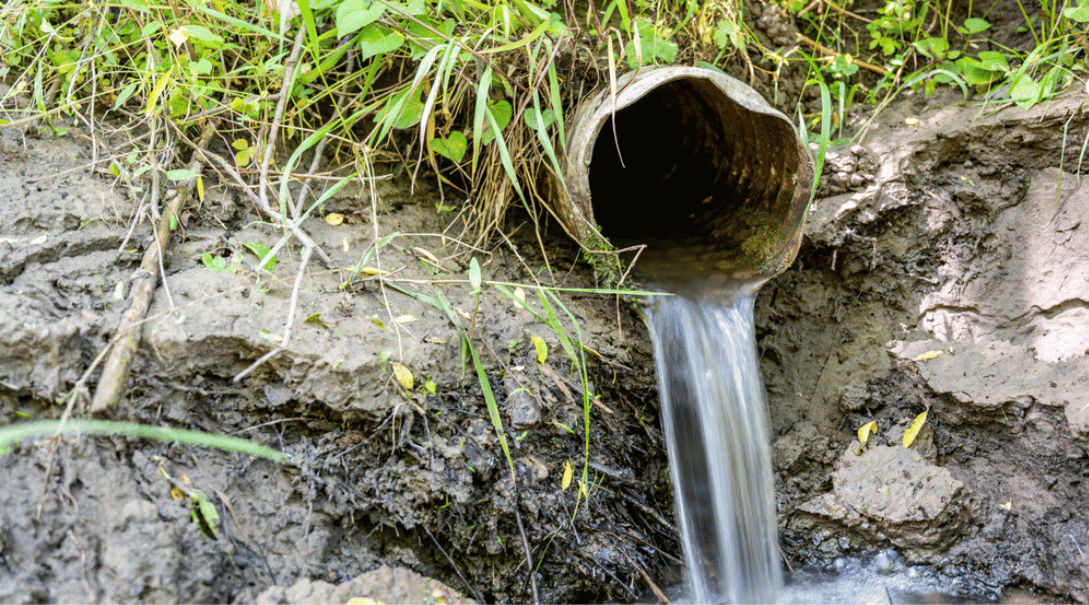The presence of toxic chemicals in waterways from storm runoff causes long-term environmental harm. Since enacting the Clean Water Act of 1972, the federal government has sought ever more effective methods of preventing petroleum products, heavy metals, pesticides, and other dangerous substances from entering sensitive areas.
In 1990, the Environmental Protection Agency (EPA) introduced the National Pollutant Discharge Elimination System (NPDES) to further regulate pollution sources such as construction projects.
Most new construction projects and many operating facilities in Florida require these permits to limit their potential ecological impact. The issue of pollution is perhaps more important than at any time in human history, which is why the EPA enforces NPDES permitting as rigidly as it does.
The NPDES permit Florida companies must obtain involves meeting certain requirements and following proper application procedures. Ensuring compliance can be complicated, so you should reach out to AOTC’s experienced team to ensure you’re filling out paperwork and archiving records correctly.
While this process may feel like a hurdle, obtaining the permit benefits businesses and communities.
Table of Contents
What Is an NPDES Permit?https://a-otc.com/24-hour-emergency-spill-response/
The NPDES permit Florida issues places limits regarding a permit holder’s ability to discharge polluting materials into the environment.
Entities that must apply for a permit include construction companies seeking to begin new projects and any facilities that discharge to a point source (such as pipes, tunnels, and ditches) where discharged toxins and stormwater may enter sensitive areas.
These permits create an agreement between the permit holder and the federal government stating that any discharge will not contain unsafe levels of chemical waste, radioactive materials, and other dangerous substances. By issuing such permits, the EPA has recourse should a business release harmful levels of dangerous substances into the wild.
The Requirements for an NPDES Permit
Most land-disturbing activities (such as construction) that take place in an area larger than one acre will require a permit. Such activities include:
- Grading
- Dredging
- Clearing
- Excavating
- Transporting
These jobs can cause serious soil erosion and introduce heavy metals and other harmful substances.
What Are the NPDES Permit Requirements?

On the EPA’s website, most states, including Florida, feature a page dedicated to types of NPDES permits. In Florida, the EPA delegates the issuing of the following permits to the Florida Department of Environmental Protection (FDEP):
- State-issued permits
- Offshore oil and gas permits
- Offshore aquaculture permits.
Entities must seek an NPDES permit when discharging from point sources into U.S. waters. If a business or construction project is discharging to municipal sanitary sewer systems, no NPDES permit is required. However, the municipality may have its own requirements, so written permission or permits may be needed before discharging.
Understanding the Documentation
Each NPDES permit form performs a different function based on the applicant’s specific needs.
Form 1: General Information
All applicants except publicly owned treatment works (POTWs) and treatment works treating domestic sewage (TWTDS) must fill out NPDES Application Form 1. Applicants must also fill out any forms among those listed below that apply to their industry.
Form 2A: New and Existing Publicly Owned Treatment Works
A POTW, whether new or already operating, must fill out Form 2A. POTWs are facilities that reclaim, treat, recycle, or store wastewater for municipalities, states, and other publicly owned organizations. POTWs do not need to fill out Form 1.
Form 2B: Concentrated Animal Feeding Operations and Concentrated Aquatic Animal Production Facilities
Concentrated animal feeding operations (CAFOs) and concentrated aquatic animal production (CAAP) facilities must fill out Form 2B along with Form 1. Animal feeding operations involve stabling or confining animals for at least 45 days within a year; CAAPs are hatcheries, fish farms, and other such facilities.
Form 2C: Existing Manufacturing, Commercial, Mining, and Silvicultural Operations
If your operation discharges wastewater in the process of manufacturing goods, buying or selling goods, mining materials, or growing trees for recreational or commercial purposes, you must fill out Form 1 and Form 2C.
Form 2D: New Manufacturing, Commercial, Mining, and Silvicultural Operations That Have Not Yet Commenced Discharge of Process Wastewater
For organizations and entities that aren’t yet discharging wastewater but will be soon, Form 1 and Form 2D are necessary.
Form 2E: New Manufacturing, Commercial, Mining, and Silvicultural Facilities That Discharge Only Nonprocess Wastewater
Nonprocess wastewater is not a result of a production process but is instead utility wastewater, groundwater remediation wastewater, water treatment residuals, and other similar wastewaters. Entities that discharge this type of wastewater must fill out Form 2E and Form 1.
Form 2F: Stormwater Discharges Associated With Industrial Activity
New and existing facilities that discharge stormwater from industrial activities must fill out Form 2F and Form 1. This type of wastewater can contain heavy amounts of pollutants. If the discharge also contains non-stormwater, the facility may have to fill out Form 2C, 2D, or 2E as well.
Form 2S: New and Existing Treatment Works Treating Domestic Sewage
A TWTDS is a wastewater treatment system or facility that stores, treats, recycles, or reclaims domestic and municipal sewage. These entities do not have to fill out Form 1; instead, they fill out Form 2S.
Each form is highly detailed, requiring applicants to report the location of their operations, the measures taken to mitigate pollutants, locations for dumping and discharging, contact information, and other pertinent details.
The NPDES Permit Application Process in Florida
To apply for an NPDES permit in Florida, follow these steps.
- Select a Form From the FloridaDEP.gov Website
On FloridaDEP.gov, a page called “NPDES Stormwater Permits and Forms” contains links to forms for Florida-specific NPDES permits. These include forms for program areas such as Construction Activity, Industrial Activity, and Municipal Separate Storm Sewer Systems.
- Fill Out the Form
Each form will have standard requirements, such as facility ID, applicant information, and facility location. The forms will also have sections for the specific industry or construction project and their pertinent details.
- Submit the Form
Forms can be submitted in one of two ways. The first is by mailing a paper copy to the NPDES Stormwater Notice Center in Tallahassee, Florida. The second is submitting through the DEP Business Portal at fldepportal.com.
The portal requires an account for application and payment services. Online submission also requires a PIN, which can be acquired through the DEP Business Portal via the Register link at the top of the home page. Once the applicant has completed the registration and verified their email, they will be eligible to apply for a PIN.
- Pay the Permit Fee
The fee will vary depending on the particular NPDES permit required and the acreage of the permitted facility or construction activities. You can pay the fee by sending a check or money order along with paper copies of the forms, or you can pay it online via credit or debit card when you submit an electronic application.
Preparing Your Application
Before you apply, make sure you read your particular application carefully to understand its requirements. The form will require the following:
- County of the project or site
- Latitude and longitude
- Project or site activity information
- Discharging information
Once you have gathered this information, check with your local guidelines to ensure you can commence with your operation and adhere to the legal requirements.
You may also need to file supporting documents such as calculated feed rates. These documents will need to be included in paper submissions. Online applicants will have opportunities to upload these documents during the submission process.
Submitting Your Application
Once you’ve logged into the DEP Business Portal and submitted your application or sent your paperwork and payment through the mail, you can expect the DEP to process your application within two weeks.
You will receive a confirmation letter explaining that your permit was approved, or you will receive a request for more information. Applicants may check on the status of their paperwork by calling the NPDES Stormwater Notice Center at 866-336-6312.
The Importance and Benefits of NPDES Permit Compliance
While the process of applying for NPDES permits may seem cumbersome, the consequences of ignoring the permit can be far more costly.
A negligent business or entity may be found liable for violating the Clean Water Act. Fines can be between $2,500 and $25,000 per day per violation, and a violator faces a prison sentence of up to one year.
Knowingly violating NPDES requirements carries stiffer penalties, with fines between $5,000 and $50,000 per day and up to three years of imprisonment.
Administrative penalties come with yet more severe punishment, with Class I violations carrying fines of up to $10,000 per violation and a total of up to $25,000. Class II violations can carry penalties of $10,000 per day with a maximum of $125,000.
The Environmental Impact of Compliance
By adhering to NPDES permit regulations, businesses and other entities that must discharge wastewater can preserve the ecological health of surrounding areas.
Wildlife, plant life, and the local populace can be in grave danger from pollution. Toxic materials can irreparably harm fish and game animals, transferring dangerous contaminants to humans when hunted and eaten.
Pollutants can also make their way into topsoil, causing lasting damage to plant life, which, in turn, can transfer toxins to animals that depend on the plants for food. Finally, storm runoff can cause topsoil to erode, leaving less land that can support plant life.
The Advantages for Your Business
Along with monetary penalties and environmental damage, other businesses and the public will likely be reticent to continue a relationship with a company that was found in violation of environmental laws. The stigma can do more long-term damage than fines, with some businesses closing for good due to their injured reputations.
Companies that comply with regulations earn goodwill with the public and other business partners. Entities that break the law willingly or through ignorance send a negative message, demonstrating that they cannot be trusted. Vendors and suppliers want to spend their time and money with companies they believe are honest and detail-oriented.
How AOTC Can Help With Your NPDES Permitting Process
Obtaining an NPDES permit is a complex process that requires detailed information regarding possible pollutant discharge and its effects on the surrounding environment.
Partnering with AOTC will reduce the steps to regulatory compliance and provide you with access to expert assistance, swiftly guiding your company toward compliance. We have years of experience working with businesses like yours and can help you make sense of the dense paperwork required for stormwater permits.
AOTC: Your Partner in the NPDES Permitting Process
AOTC is a veteran-owned small business specializing in emergency spill response, industrial cleaning, hazardous waste transport and disposal, and more. We understand the necessity for clean, compliant operations and are ready to guide you through the complex world of NPDES permits and applications.
Engaging AOTC’s Services
Partnering with AOTC gives you access to our reliable, detail-oriented procedures for filing permits and safely processing and disposing of pollutants. We’ll ensure you adhere to best management practices (BMPs) as your reliable partner for environmental remediation services. Contact us to get started today!

